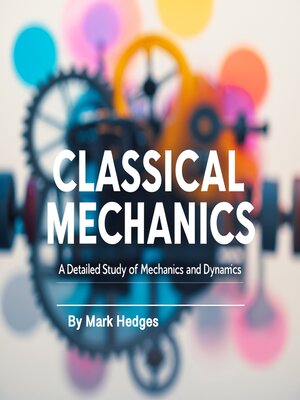Classical Mechanics
audiobook (Unabridged) ∣ A Detailed Study of Mechanics and Dynamics
By Mark Hedges

Sign up to save your library
With an OverDrive account, you can save your favorite libraries for at-a-glance information about availability. Find out more about OverDrive accounts.
Find this title in Libby, the library reading app by OverDrive.



Search for a digital library with this title
Title found at these libraries:
| Library Name | Distance |
|---|---|
| Loading... |
Classical mechanics is the foundation of physics, describing the motion of objects under the influence of forces. It is based on Newtonian principles and provides the groundwork for various fields such as engineering, astronomy, and applied sciences. This chapter introduces the fundamental concepts, historical context, and different approaches to classical mechanics.
Classical mechanics originated with the pioneering work of Galileo Galilei and Sir Isaac Newton. Galileo's studies of motion laid the foundation for Newton's laws, which were later formalized in Philosophiæ Naturalis Principia Mathematica (1687). These laws revolutionized the understanding of motion and force, enabling precise predictions of mechanical systems. Before Newton, the Aristotelian view dominated, which incorrectly stated that objects require a continuous force to remain in motion. Newton's insights replaced this with the concept of inertia, fundamentally changing physics.
At its core, classical mechanics describes the relationship between forces, motion, and energy. It assumes that time and space are absolute and independent entities. Unlike quantum mechanics and relativity, which describe extreme conditions, classical mechanics applies to everyday objects moving at speeds much lower than the speed of light. The field is traditionally divided into several branches, including kinematics, which studies motion without considering forces, and dynamics, which examines forces and their effects.







